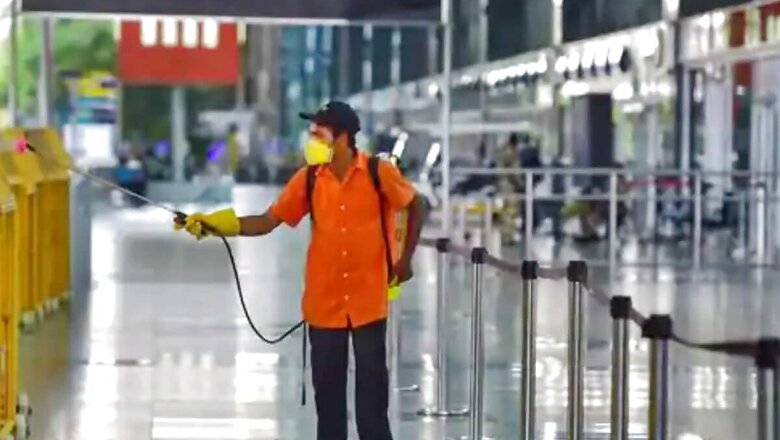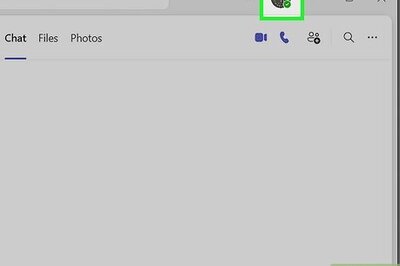
views
The Supreme Court has criticised the Central government for not doing enough to stop spraying of disinfectant and use of artificial UltraViolet rays on people during the Covid-19 pandemic.
Dissatisfied with the response by the Ministry of Health and Family Welfare, a bench, headed by Justice Ashok Bhushan, regretted that instead of taking immediate remedial action in the interest of health of the people, the government stopped merely at issuing advisories that fumigation or use of UV rays are not recommended.
The bench, which also included Justices R Subhash Reddy and MR Shah, noted that the duty cast upon the Ministry under the provisions of the National Disaster Management Act (NDMA), 2005, required it to do more than merely issuing advisories, and directed the government to issue appropriate orders within a month under the Act to ban spraying of disinfectant and UV rays.
“The Respondent No.1 (Ministry) has wide powers and responsibilities under Act, 2005, which could have been utilized to remedy the situation. In event, use of disinfectant on the human body is to cause adverse effect on the health of the people, there has to be immediate remedial action and Respondent No.1 cannot stop only by saying that such use is not recommended,” said the court in its judgment on Thursday.
It added that even as by its advisory, the Ministry said that spraying of disinfectant on the human body is not recommended but the Ministry “has not taken any further steps in the above context taking any measure either to prevent or regulate the spraying of disinfectant on the human body.”
In its judgment on a PIL that sought forthwith ban on disinfectant tunnels and spraying of disinfectant on human body, the bench underlined there had to be some regulatory regime when the Ministry itself is of the view that spraying disinfectant on human body, fumigation or use of UV rays is not recommended.
“When Respondent No.1 has issued advisory that use of disinfectant on human body is not recommended and it has been brought into its notice that despite the said advisory, large number of organizations, public authorities are using disinfectants on human body, it was necessary for the Respondent No.1 to issue necessary directions either to prevent such use or regulate such use as per requirement to protect the health of the people,” it lamented.
The top court found flaws with a submission by the Central government that their role is limited to provide necessary guidelines and financial support and that it is for the States and Union Territories to implement guidelines by the Ministry of Health and Family Welfare.
“No exception can be taken to the above pleading but the provisions of the NDMA confer certain more responsibilities and duties on the Ministry apart from issuance of guidelines and providing financial support. The Act is a special legislation containing self-contained provisions to deal with a disaster. The pandemic being a disaster within the meaning of the NDMA, has to be dealt with sternly and effectively,” it emphasised.
When public authorities and organisations were using disinfectants on human body and there are various studies to the effect that it may be harmful to the health and the body, the bench held, “some more actions were required to remove the cloud of uncertainty and to regulate the use even if it was to either prevent such use or regulate the use so that health of citizens is amply protected.”
After reading out the operative part of the judgment, the bench told the counsel for the Central government that they expect the authorities to issue necessary orders preferably within a month, and not wait till the 29th day to do so only because the court has given them a month.
Read all the Latest News, Breaking News and Coronavirus News here

















Comments
0 comment